

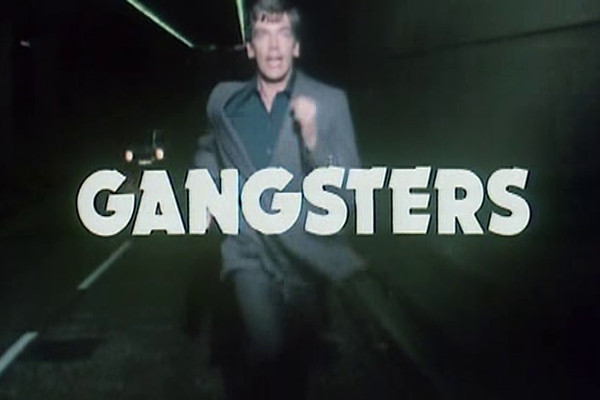
The series starred Maurice Colbourne as ex-SAS soldier John Kline, who found himself trapped in between various warring factions of Birmingham's underworld, as well as police operatives of questionable motives. The entire series ran from September 1976 – February 1978, celebrating its fortieth anniversary this year, and making it an ideal time to rank every episode, from worst to best.
As a warning, then the series was made for adults, and so some of the following screen captures may contain shots of violence and semi-nudity that are not appropriate for younger readers. Some overviews may also contain spoilers in discussing the content of the episodes.
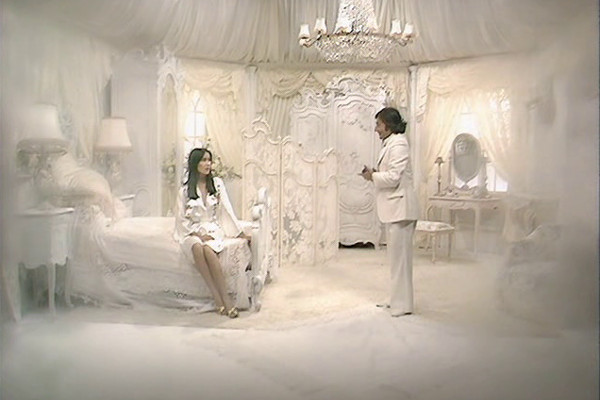
Perhaps more than any other "Worst To Best" article the site has run, this ranking of Gangsters is highly subjective. A lot of the programme's reputation rests on its second season, which introduces metatextuality, from having onscreen captions, breaking of the fourth wall and even the writer himself dictating the action. Operating as a genre-mixing pastiche of 1930s potboilers, taking in everything from James Cagney to Fu Manchu, it contains over-the-top, hammed-up acting as a stylistic choice.
However, just because you're in on the joke, it doesn't mean you have to like it, and many of the meta references seem more frivolous affectations rather than genuine commentary. Dennis Potter reviewed the final episode of the series for The Sunday Times, and slated it as "so obnoxiously delighted with its own gaggle of second-hand styles that it seemed to be licking itself all over."
Perhaps the saddest moments of season two occur with Saeed Jaffrey's performance. Excellent in the first season, he intentionally camps it up here, almost devouring the screen as he utters lines like "There is a saying in the bare mountains of my land... a woman for necessity ... a boy for pleasure... a goat for choice."
However, this weak episode is not entirely without its plusses – it might be the only time in history where you can see a man with an electronic voice box accidentally set himself alight with a Molotov Cocktail, with his voice box uttering "oh – shit - !", before he runs down the street in flames, the box making a bizarre buzzing noise to add to the offbeat humour.
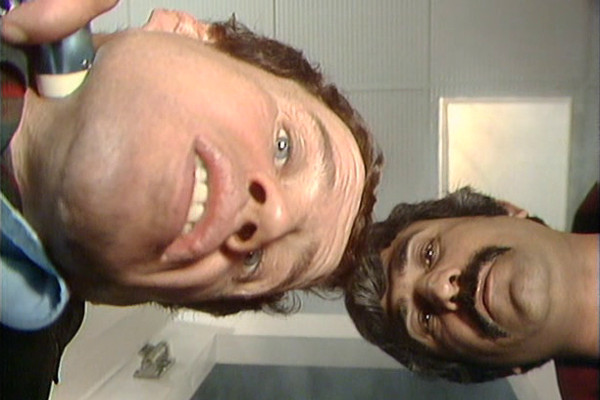
If Gangsters had always been in the format of the second season then the moments of forced artifice would maybe have been less jarring... though of course the series may not have been a hit at all if it had. Around four million viewers abandoned the series during its second run, the more surreal elements likely the cause... or perhaps the audience felt that the story had already been told and had nowhere fresh to go.
So it is that the striking credit sequence, which mixed cuts of Bollywood films with Colbourne running and captions like "Most colourful drama of hate and love", is now reconfigured as a semi-cartoon pastiche of James Bond movies, complete with words added to the theme and sung at full pelt by Chris Farlowe. In all honesty, there is a place in the world for a James Bond pastiche sung by Chris Farlowe, but maybe that place isn't a series that had previously been gritty and semi-realistic.
In picking up the strands of the first season and bringing back some recurring characters into John Kline's life, it perhaps stretches credulity, particularly with Sarah Gant (Alibe Parsons), a former brothel madame who now happens to work for a US drug enforcement agency and just so happens to be deployed to England to investigate drug smuggling around Kline's restaurant by Triads. Such narrative diversions are so contrived and forced that it makes Bronson Pinchot becoming an international arms trader in Beverly Hills Cop III look positively restrained by comparison.
Once more the episode highlight is Terry Downes' portrayal of Roy Sturt, the man with an electronic voice box, who utters his demands with the line "quick, me batteries are running out!"
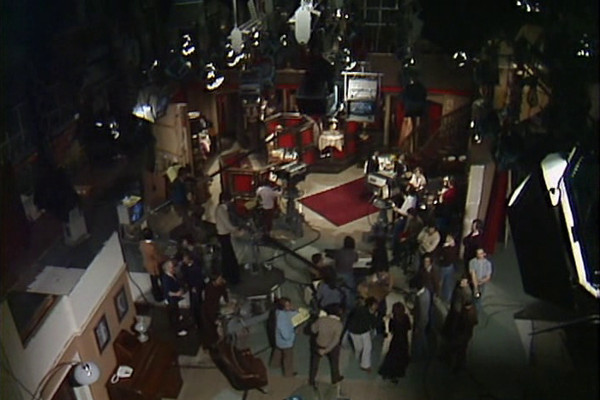
The finale of the series, which daringly kills off the lead character halfway through the episode, before concluding with Kline's girlfriend (the superb Elizabeth Cassidy) walking off set amongst the camera crew and personnel, and writer Philip Martin throwing the completed script up in the air.
As this is a site largely concerned with SF TV, then it's perhaps correct to assume that a good percentage of those reading may only be aware of Gangsters because the star appeared as the mercenary "Lytton" in two Doctor Who stories, or that Philip Martin went on to write two Doctor Who stories in the 80s, the last of which also featured Gangsters regular Alibe Parsons in a guest role. Martin and Parsons here share screen time in a bizarre sex scene, whereby Martin plays the role of a Devil... but a Devil who dresses and acts like WC Fields and breaks the fourth wall. It's extremely left-field, though as the first episode of season two was already airing while Martin was still working on this script, it's to his credit that he got it completed ahead of the BBC's rescheduling.
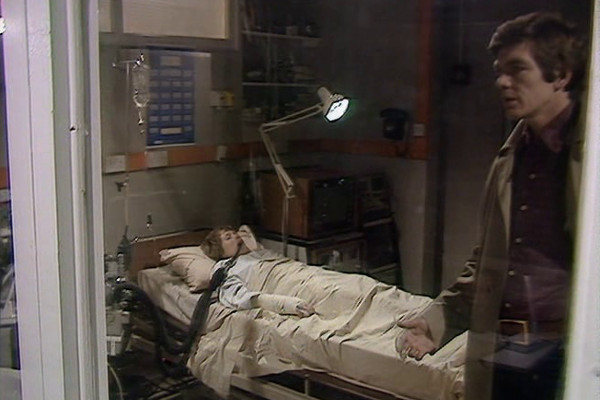
The first of three episodes to be directed by Roger Tucker, a man who that same year would go on to direct the serial Sexton Blake and the Demon God. Like the second season of Gangsters, Sexton Blake was something of a pastiche on television, and illustrates Tucker's skill in such a field. While the metatextual elements aren't as pronounced in this episode as others, there is very much a safer, "cosier" feeling to the second season, the element of danger and biting politics of the first somewhat lost in the mix.
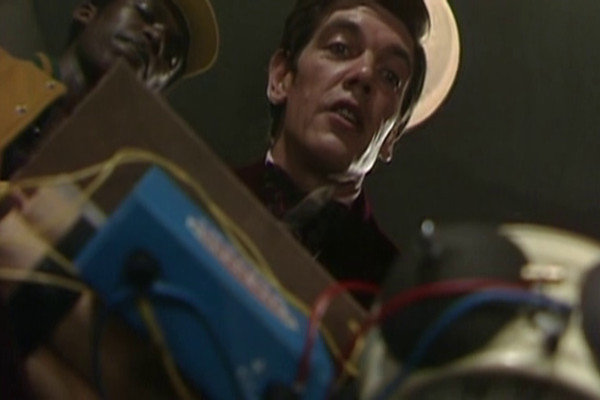
A reminder that, while the first season was far more consistent, it too wasn't without its weaker moments. One innovative aspect of Gangsters for the time is that it frequently opted for handheld camerawork, particularly on tracking shots. Sadly, as this was produced before the age of the steadycam, it does result in frequently wobbly shots that look archaic to a modern eye.
But more significant is the rise of overt humour in this second episode. Here stereotyped Jewish tailors vie for screen time with stereotyped homosexuals, and the previously menacing gangland boss Malleson becomes more comic and cartoonish... perhaps not helped by being portrayed by Paul Barber. While Barber is a fine actor, he's now so well-known for roles in The Full Monty and Only Fools and Horses (yet to be made at the time, of course) that it's hard not to be reminded of those other roles. That said, he's perfectly fine in a small role in The Long Good Friday, so it can probably be attributed to the artifice of his deliberately self-conscious dialogue.
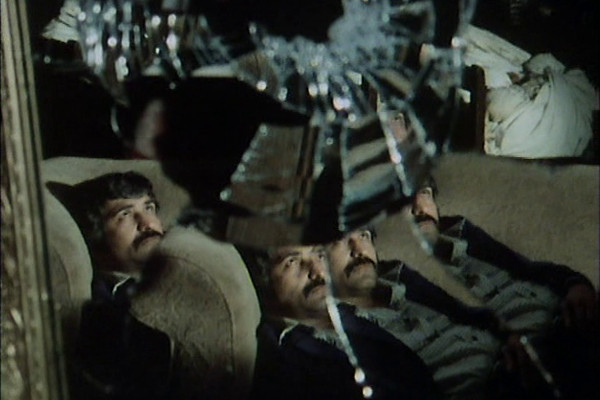
17 minutes into this episode there's a boom mike camera in shot. As Gangsters is at this point such a meta series, it acts as a face-saving device, whereby such things can be passed off as intentional, rather than the mistake it almost certainly was. The meta elements here extend to Anne indulging in a painfully drawn out conversation with an interviewer, before declaring "let's cut the dialogue there", as well as the regular on-screen captions throughout. Standout of the episode is Ric Young as a James Cagney-worshipping Triad member, prowling over the ganglands in an improbable 1930s zoot suit.